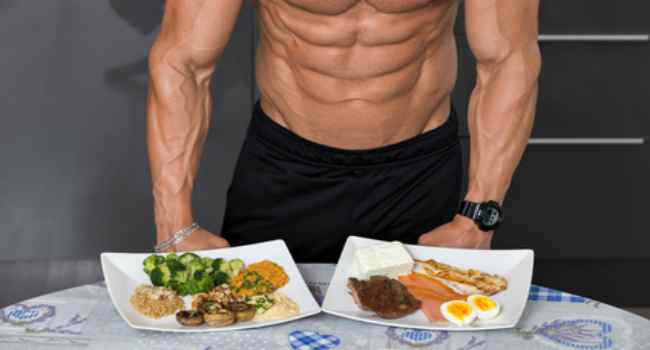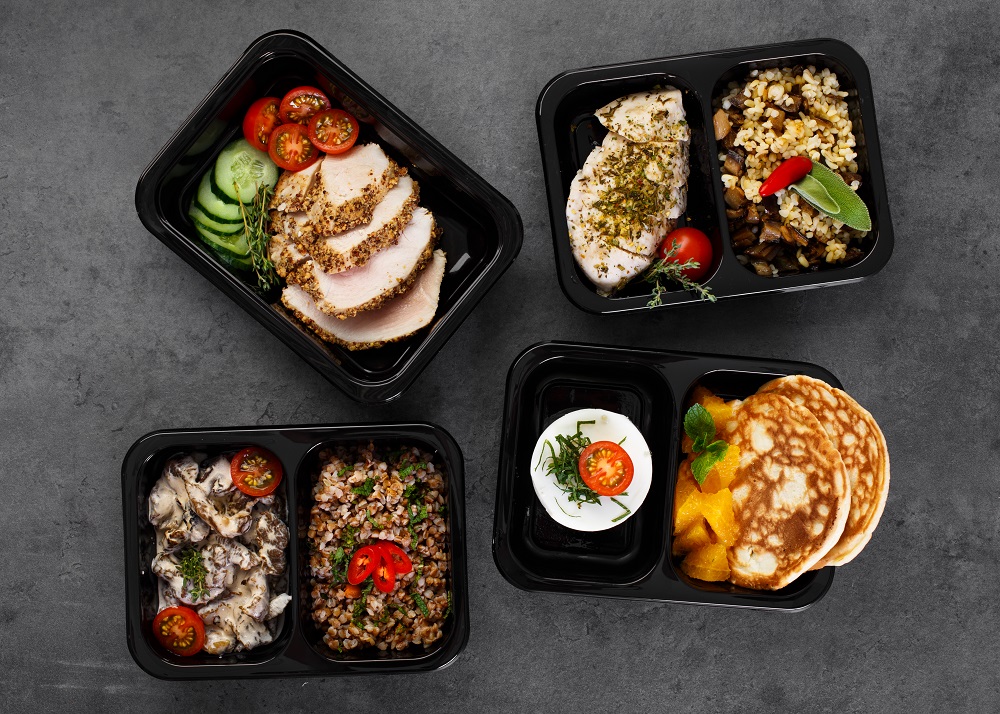Protein is categorized as a “macronutrient” just like fats and carbohydrates. But unlike fats and carbohydrates, the body does not store protein, so there is no storage to go to when protein is needed. What is not needed the body will excrete as waste.
So, with that said you should eat protein at regular intervals throughout the day to build muscle effectively. I suggest eating 6 small meals a day instead of the traditional big three and consume a good quality source of protein with each of them. Below is a list of over 40 good sources of protein.
However, I should mention that the amount of protein which our body can digest and use for muscle building purposes is not always 100%. The most easily digested natural protein source are whole eggs. The percentage our body’s absorbs egg’s protein source is 94%. Because eggs contain the best protein digestion rate of any natural source, eggs are given a protein BV “Biological Rating” of “100” and all other protein containing food sources are rated according to how easily they are digested in comparison to egg protein.
Today, there are protein powders which digest even easier than egg protein and can be used by our bodies more than the 94%. These protein powders would have a protein rating higher than 100 which is noted on the table below the highest natural sources of proteins.

Highest Natural Sources of Protein
- Any lean cuts of meats
- 100% Whey Protein Shakes
- White meat or Poultry
- Any Raw Nuts, Peas, Beans (not refried), Lentils or Legumes high protein foods for vegetarians
- Most fish
- Any seafood
- Raw Almonds –
- Lightly Cashews
- Lightly peanuts
- Tuna
- Sardines
- Trout
- Salmon
- Bass (fresh water/sea)
- Cod
- Crab
- Crayfish
- Flounder
- Steaks with fat trimmed off
- Oysters (half shell)
- Shrimp
- Beef (range-fed or game)
- Lean Chicken breast (skinless)
- deli Turkey breast
- Skinless Turkey breast
- deli Turkey
- Scallops
- Egg whites
- Eggs
- Egg beaters
- Leanest cuts of Beef like Red round steaks and roasts, top loin, top sirloin and chuck shoulder and arm roasts.
- Leanest cuts of pork like pork loin, tenderloin, center loin and ham.
- Well-trimmed Leg of lamb
- Top Round Leg cutlet or Chop cuts of Veal
- Cornish hen
- Hazelnuts
- Pecans
- Pistachio nuts
- Natural peanut butter
- natural cashew butter
- natural almond butter
- Pumpkin seeds
- Sunflower seed
Biological Value
The Biological Value (BV) is a scale of measurement used to determine what percentage of a given nutrient source is utilized by the body. The scale is most frequently applied to protein sources. Biological Value is derived from providing a measure intake of protein, then determining the nitrogen uptake versus nitrogen excretion. The theoretical highest BV of any food source is 100%. With that said,”BV” refers to how well and how quickly your body can actually use the protein you eat.

Below is a list of various sources of protein and their BV Ratings.
| Protein Ratings | |
| FOOD | PROTEIN RATING |
| Eggs (whole) | 100 |
| Eggs (whites) | 88 |
| Chicken / Turkey | 79 |
| Fish | 70 |
| Lean Beef | 69 |
| Cow’s Milk | 60 |
| Unpolished Rice | 59 |
| Brown Rice | 57 |
| White Rice | 56 |
| Peanuts | 55 |
| Peas | 55 |
| Whole Wheat | 49 |
| Soy beans | 47 |
| Whole-grain Wheat | 44 |
| Peanuts | 43 |
| Corn | 36 |
| Dry Beans | 34 |
| White Potato | 34 |

Here is a short list of some protein sources you can find in supplements today. Notice how they compare to the natural sources listed above:
| Protein Ratings | |
| PROTEIN SUPPLEMENT | PROTEIN RATING |
| Whey Protein Isolate | 159 |
| Whey Protein Concentrate | 104 |
| Casein | 77 |
| Soy | 74 |
